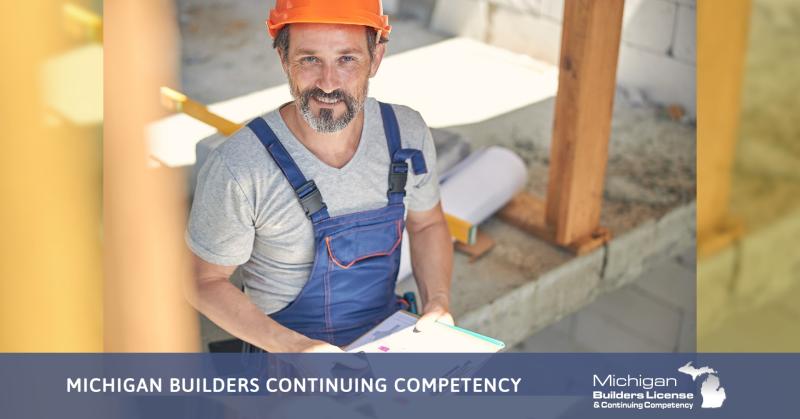In Michigan, continuing competency is a mandatory requirement for residential builders aiming to renew their licenses. This initiative ensures that builders remain knowledgeable about the latest building codes, safety regulations, and industry standards, ultimately contributing to the construction of safe homes and buildings.
Understanding Continuing Competency
Continuing competency, synonymous with continuing education, serves as a bridge for builders to stay informed on evolving regulations and practices within the industry. The Michigan Licensing and Regulatory Authority (LARA) oversees the enforcement and regulation of building codes and construction standards in the state, making continuing competency courses an essential aspect of maintaining a builder's license.
The Requirement for Continuing Competency
The state mandates different continuing competency hours based on how long you've been licensed. If you've been licensed for more than six years, a 3-hour class is required. Conversely, those licensed for less than six years must complete a 21-hour course. This structure aims to equip newer licensees with a broader understanding of the industry while ensuring seasoned builders stay updated on critical changes.
Navigating the Renewal Process
The renewal process is online, requiring builders to complete their continuing competency courses before license renewal. Around March 1st each year, a notification is sent out, signaling the opening of the license renewal portal. However, builders can access the portal anytime to check their status or renew their license.
Why Is It Required?
The necessity of continuing competency stems from the need to construct buildings that are safe for occupants and compliant with current building and safety codes. Regulation changes, such as those related to the Americans with Disabilities Act (ADA) or the Occupational Safety and Health Act (OSHA), could significantly affect construction practices. Builders unaware of these updates risk non-compliance, leading to potential penalties or reconstruction costs.
Course Content and Completion
Continuing competency courses cover various topics, including updates to Michigan's building code, safety regulations, and business law topics relevant to the construction industry. These courses highlight the most significant and recent changes in the industry, avoiding the finer points that can clutter the essential takeaways.
Builders receive a certificate of completion upon completing the required continuing competency course. This certificate should held onto as proof of completion in the event of an audit.
Getting Started with Continuing Education
For builders looking to fulfill their continuing competency requirements, the easiest path is to take online courses. These courses provide flexibility, allowing builders to complete requirements at their own pace, which is particularly beneficial during busy periods or for those juggling multiple projects.
Continuing competency is critical for maintaining a builder's license in Michigan, stressing the importance of staying informed and compliant with industry standards. By adhering to these requirements, builders protect their ability to operate within the state and contribute to constructing safer, more reliable buildings for their communities.
For more detailed information on continuing competency requirements and course options, builders should explore resources such as the Michigan Builders License.
Make sure your fellow Michigan Builders whose licenses are up for renewal this year are aware of these crucial steps. Share this blog on your social media pages!


